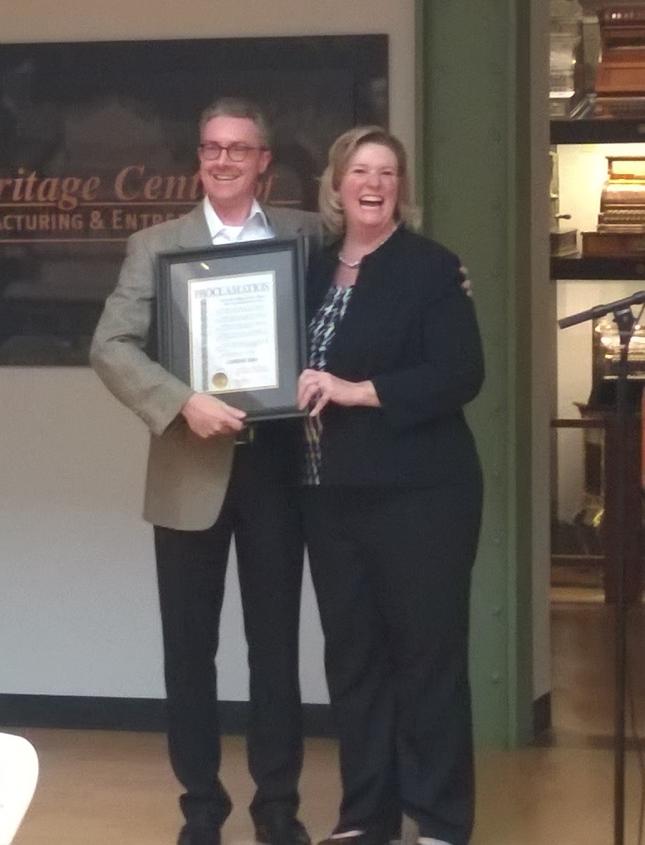Company History
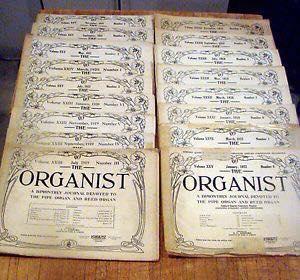
Founded in 1890, The Lorenz Corporation’s vibrancy belies its age. Founder E.S. Lorenz attained a reputation for being a driven, hardworking individual. At the age of twenty-three, he became president of Lebanon Valley College in Annville, Pennsylvania. When health issues ended his presidency in 1889, he turned to music composition as a part of his recuperation, compiling a hymnal for the United Brethren Publishing House in Dayton. Soon after, E.S. established the Lorenz Publishing Company, producing music for the small, untrained church choir.
In 1898, E.S. Lorenz established the company’s first subscription magazine. The Organist provided a variety of music in different styles and difficulties for church organists. The magazine became the foundation upon which E.S. built what is now The Lorenz Corporation. The Organist later became a more focused publication containing easy and moderately easy organ music. It was later joined by further organ periodicals: The Organ Portfolio (launched in 1937) for intermediate music and The Sacred Organ Journal (launched in 1962) for moderately advanced music. These magazines brought new music and arrangements of classics directly to the doors of church musicians.
Other magazines soon followed. The first monthly choral journal, The Choir Leader, began in 1903. In 1913, feeling that churches needed a more moderate-level resource for choral music, E.S. launched The Volunteer Choir. The creation of The SAB Choir rounded out the choral magazine offerings in 1972. Further keyboard magazines were established to meet the continuing demands of church musicians: The Church Pianist in 1984 and Keyboard Worship & Praise in 2007.
E.S. served as editor for all of the company’s early publications, and in 1901, his oldest son Karl K. Lorenz joined him as the company’s business manager. Karl’s leadership was vital in establishing and expanding The Lorenz Corporation’s influence on the music industry. In 1907, The Lorenz Corporation made its first acquisition with The Choir Herald, another choral magazine that was often seen as The Choir Leader’s strongest rival. Karl also oversaw the purchase of the Tuller-Meredith Company of New York, which specialized in Sunday school programs, diversifying the company’s offerings. Over the years, The Lorenz Corporation continued to invest in its competitors and other ventures, purchasing more than thirty other publishing companies.
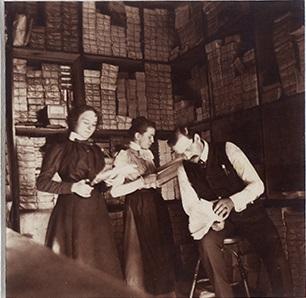
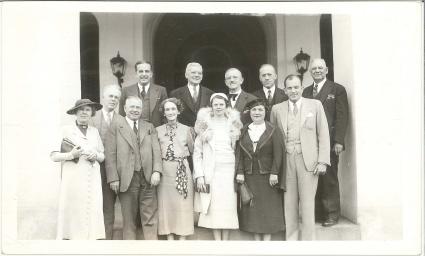
With a shared spiritual connection, The Lorenz Corporation joined nine other publishing companies as charter members of the Church and Sunday School Music Publishers Association in 1926. This group formed around a mutual concern about copyright information, education, and protection. Shortly after its founding, the group renamed itself the Church Music Publishers Association, and it is still active today.
In 1932, The Lorenz Corporation became a family affair when Ellen Jane Lorenz Porter, daughter of Karl, joined the company as junior editor under the tutelage of her grandfather E.S. She had just completed musical studies in Paris with legendary teacher Nadia Boulanger. After eight short years, Ellen Jane worked her way up to Editor-in-Chief, a position that she held until her retirement in 1963. During her tenure, Ellen Jane established herself as a respected authority on handbells and is chiefly responsible for the prominence of the instrument in the United States today. After her retirement, she earned a Ph.D. in sacred music and amassed one of the world's largest personal collection of hymnals. She continued to write and publish with The Lorenz Corporation until her death in 1996.

During its long history, The Lorenz Corporation faced a few major crises in between its many triumphs. Thankfully, the Lorenz family was spared the worst of the great Dayton flood of 1913, and Karl was able to open up his family’s home to Orville Wright when he became stranded in the flood waters. The following year, World War I began to affect the music industry. Most of the anthems published contained German texts, with and without English translations. The anti-German sentiment of America was so strong that an incredible amount of time and money went to translating the texts, re-engraving the music, and publishing new copies, nearly bankrupting the company. Later, the Great Depression could have closed the company’s doors as it did so many businesses during that time. Fortunately, in the face of the crisis, church attendance grew, as did church choir participation. While churches were purchasing less new music, they found themselves needing to order more copies of the music that they already owned to support their larger choirs.
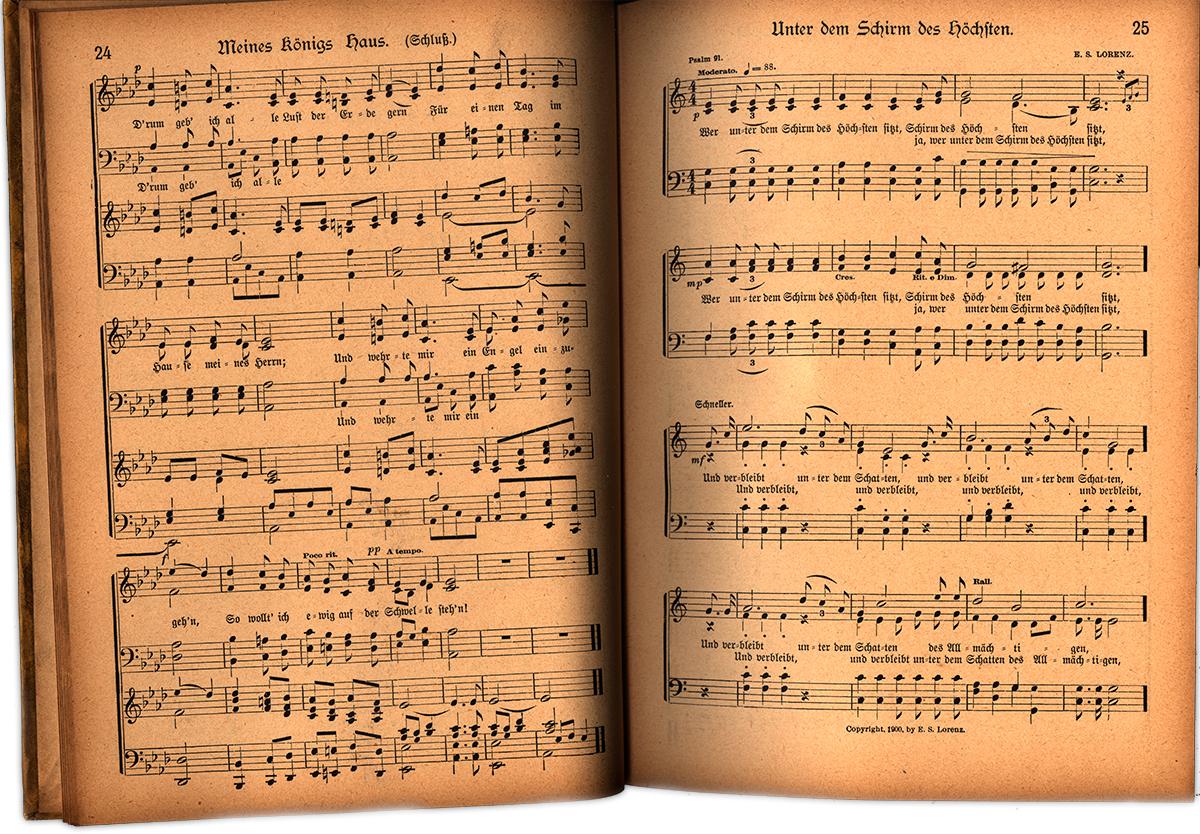
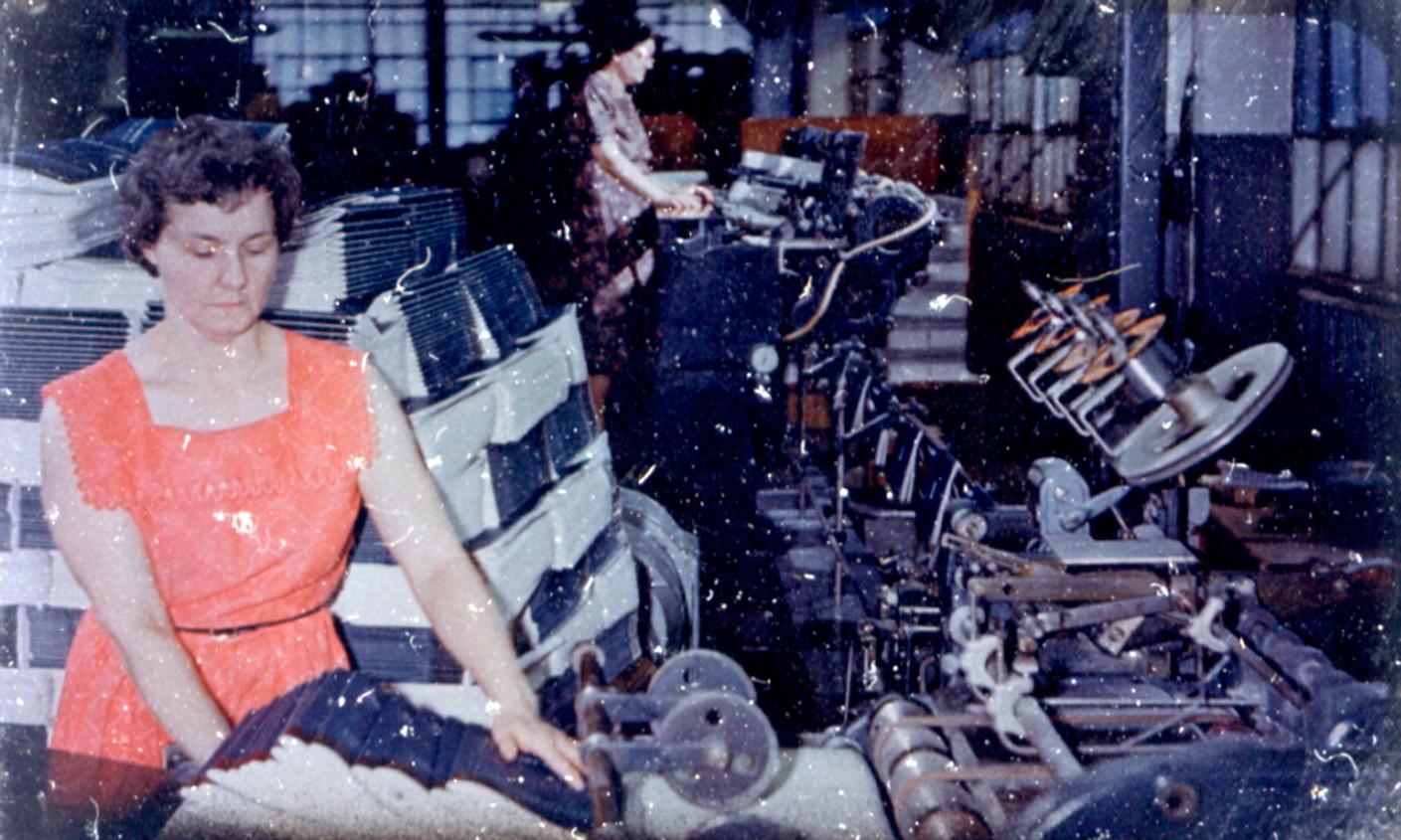
Before his death in 1942, E.S. retired and Karl became senior partner. Edmund B. (Ed) Lorenz, younger brother of Ellen Jane, joined the company as the new business manager. Ed served as the driving force behind the printing company, born in 1958, that now holds the Lorenz Publishing Company name. The printing facility still resides in the Third Street building into which The Lorenz Corporation moved in 1934. By the 1970s, the Lorenz Publishing Company printed all of the corporation’s music, making it a truly unique player in the industry. In fact, as specialists in music printing, the company contracted printing agreements from other music publishers, and continues to do so to this day.
The 1960s brought modernization and efficiency to The Lorenz Corporation. Ed Lorenz made The Lorenz Corporation the first independent music publisher to install a successful computer system. At the same time, the company’s satellite locations in Memphis, Princeton, Sacramento, and Chicago closed to focus operations at its central, Dayton home. Ed’s sons Steve and Geoff Lorenz began working at the company in 1964 and 1965 respectively. The fourth Lorenz generation to join the company, they infused it with more ideas and avenues to pursue.
As The Lorenz Corporation continued to grow, it became necessary to develop divisions with clearly defined purposes to reach the appropriate consumers. 1963 marked the debut of The Sacred Music Press, a division that brings sophisticated music to advanced church musicians throughout the country. Heritage Music Press forged a new direction for the company in 1968, producing educational music and resources for piano, band, choir, and elementary classrooms.
The company purchased Triune Music, Inc. of Nashville to create Lorenz Creative Services in 1979. This division produced records, published music, and offered copyright promotion services in the contemporary Christian field. This division separated from The Lorenz Corporation in 1985 when Steve moved the company back to Nashville. In 1989, The Lorenz Corporation reacquired Lorenz Creative Services, Triune Music, Sonshine Productions, Laurel Press, and Kirkland House.
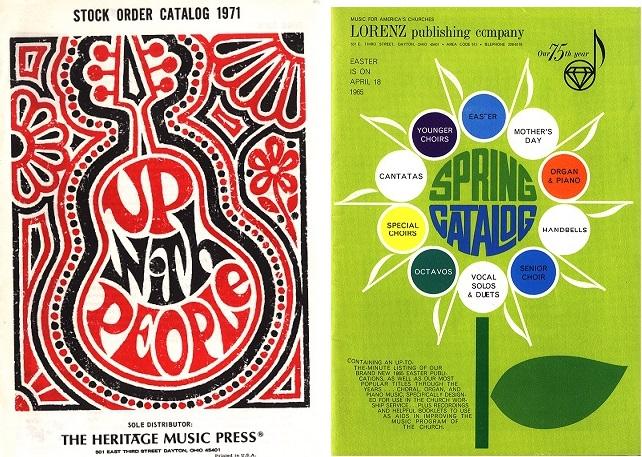

During the 1980s and 1990s, The Lorenz Corporation expanded its enterprises to become the exclusive distributor for many music publishing companies. The American Guild of English Handbell Ringers, now known as Handbell Musicians of America, selected The Lorenz Corporation as their exclusive distributor in 1981, and the relationship continues to this day. The Lorenz Corporation also served as the exclusive distributor of Chorister’s Guild Publications from 1983 through 2013. In 1989, The Purifoy Publishing Company designated the company as their distributor until The Lorenz Corporation purchased them a couple of years later. In 1991, the company also acquired Roger Dean Publishing Company to better serve the needs of college and professional choirs and F.E.L. Publications, gaining the rights to many of the most popular modern hymn tunes.
The most unusual acquisition during this period was the purchase of CSA, Inc. in 1988, a company that specialized in licensed custom products for college bookstores. It produced date books and planners for universities, Disney, Sea World, Hanna-Barbera, Ziggy, and even Sesame Street. As digital versions of these products became more useful and prevalent, The Lorenz Corporation turned its focuses to other endeavors and closed the division in 2014.
When the company celebrated its centennial in 1990, the corporate headquarters moved into a new building next door to its printing and warehouse facility. Today, the company’s full-time employees can still be found in this building editing music, designing covers, assisting customers, crafting advertising pieces, and much more.
Reiff Lorenz, Geoff’s oldest son, joined the company in 1992, marking the fifth and most recent generation to support and grow The Lorenz Corporation. 2005 brought the beginning of many less visible improvements, including the adoption of Lean Manufacturing principles. In 2009, the company focused its attention on its staff, ensuring that they remain the finest in the industry with the introduction of a company-wide and -funded education initiative that allows for continued employee growth.


The company saw more corporate growth opportunities in education throughout the 2000s and 2010s. Heritage Music Press launched Activate! magazine in 2006 to serve elementary classroom music teachers with bimonthly resources and purchased Memphis Musicraft Publications in 2013 to expand their classroom music offerings. The Lorenz Corporation began to reach the general education market in 2008 with the creation of Lorenz Educational Press. This division utilized the talents of the strong internal editorial department, bolstered by the key educational publishing acquisitions of Milliken Publishing and The Teaching & Learning Company in that same year, to bring exciting resources to all teachers.
The Lorenz Corporation continued to broaden its business enterprises with additional partnerships and acquisitions. In 2009, it became the worldwide distributor for all of Santa Barbara Music Publishing’s publications. In 2012, The Lorenz Corporation took over the distribution and management of the keyboard, vocal, instrumental, and Crystal Sea catalogs of Lillenas Publishing and purchased SoundForth, the music publishing division of Bob Jones University. In 2017, the company made one of its largest acquisitions, purchasing Word Music & Church Resources of Nashville.
Many organizations have honored The Lorenz Corporation in its recent decades. The Gospel Music Association recognized the company in 2003 with the Dove Award for Lifetime Achievement. In honor of the 125th anniversary in 2015, many additional organizations came forward to acknowledge The Lorenz Corporation’s achievements. The National Association of Music Merchants presented the company with a Milestone Award for excellence and service in the industry. The Church Music Publishers Association honored the company with the Quasquicentennial Award in recognition of The Lorenz Corporation’s excellence, perseverance, and innovation in church music publishing. Additionally, Dayton Mayor Nan Whaley proclaimed September 1, 2015 Lorenz Day in honor of the company’s 125 years of continuous service in the community.
The Lorenz Corporation is proud of its history and growth through the decades. Across its numerous imprints, the company releases hundreds of products each year. Long an industry leader in printing, the company continues to broaden its distribution and production methods through digital media. While portions of the corporation have changed to remain current with the industry, what has never changed is the feeling of camaraderie and purpose among The Lorenz Corporation staff and the commitment to producing quality products for all of the customers that they serve.
